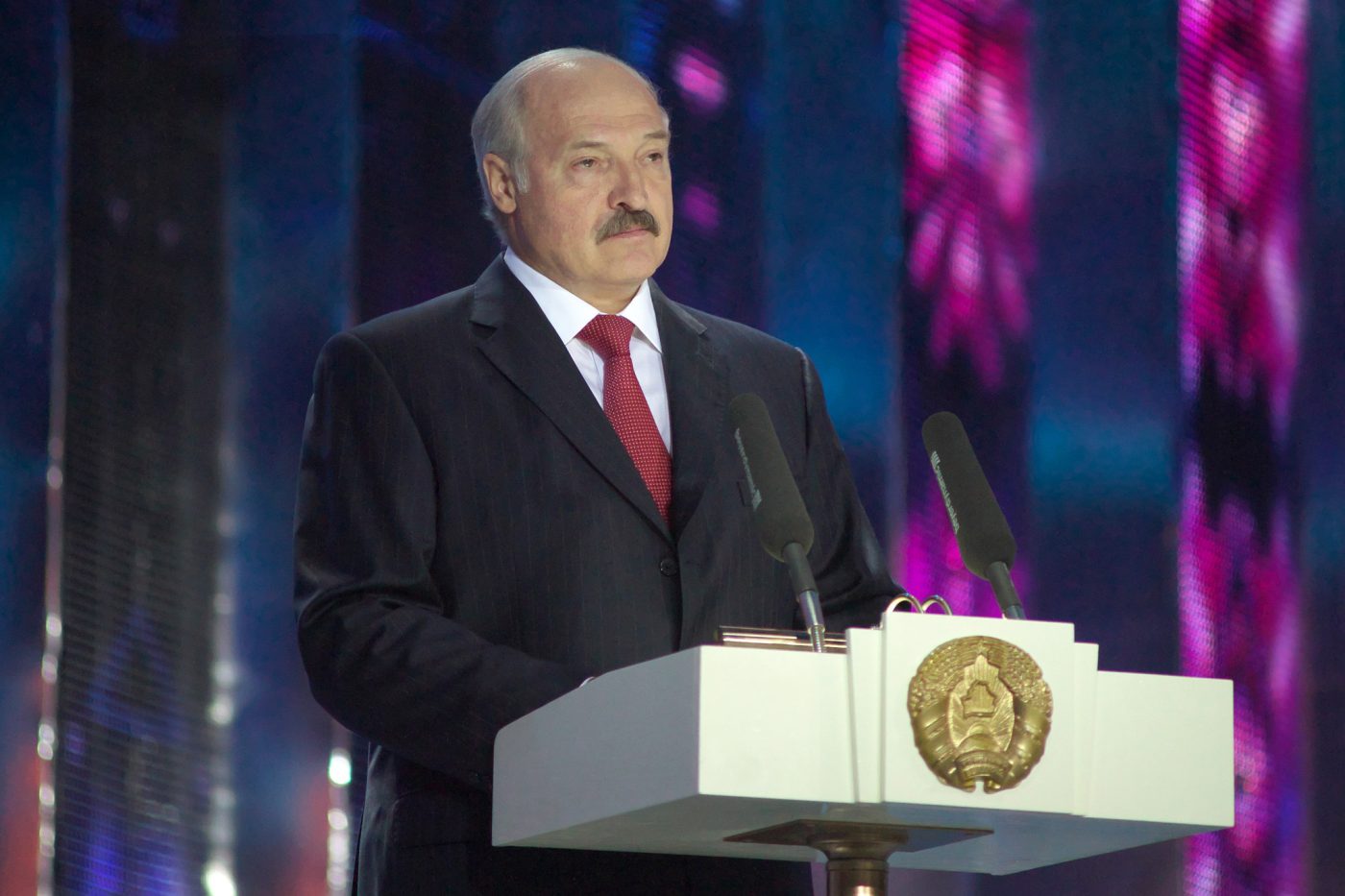Every advanced country has implemented some kind of social distancing in response to the pandemic. Belarusian President Alexander Lukashenko, however, is taking a different approach, distancing his country from the public health mainstream. Cinemas, theaters, shopping malls, and restaurants remain open. Public transportation continues to run, the soccer league plays on, and streets in Minsk are being prepared for the May 9 parade in which Russian and Chinese troops are expected to participate.
Lukashenko, who has ruled the hold-out autocracy for a quarter-century, calls the strict measures taken elsewhere “utter stupidity;” the pandemic is a “psychosis.” He suggests vodka, saunas, and chilly surroundings such as ice hockey rinks will ward off the virus. The former boss of a collective farm, he also recommends outdoor agricultural work. “The tractor will heal everyone. The fields heal everyone.” In a TV interview before stepping onto the ice for a hockey match with some of the Belarusian elite, he dismissed fears for his own health, quoting from Emiliano Zapata: “It’s better to die standing on your feet than to live on your knees.”
Cowardly facts have been banished. The Belarusian Ministry of Health ceased announcing coronavirus statistics. The last available figures showed 152 registered cases of coronavirus in the country on March 30. Some experts say that the real numbers are much higher. Some cases may be relabelled. In the city of Vitebsk, pneumonia diagnoses have increased nearly three-fold, with three hospitals reorganized to deal with infected patients. A doctor in the city says its four main hospitals have reached their maximum capacities. Entry to their premises is strictly controlled; relatives of those hospitalized are unable to get any information from doctors. Nobody is explaining the reason for these rules—reminding many of the information blackout that marked the early days of the Chernobyl disaster. Secrecy is merging into paranoia. Lukashenko last week ordered the state security service (still called the KGB in Belarus) to investigate anyone who reports a death related to COVID-19.
But information, like pathogens, holds no respect for borders. Belarusian society is self-managing a quarantine. Social media users are self-reporting COVID-19 cases via photos of emergency medical workers in protective suits. The chief medical officer of the country’s pediatric clinics launched an online initiative—much publicized on Facebook—urging people to stay at home. Another social initiative launched StayHome, which allows people to record their self-isolation. Opposition activists have started online campaigns highlighting the failure of the state, social, and individual responses. The YouTube channel “Sery Kot” (Gray Cat) published a video showing empty halls at Minsk State Linguistic University. Belarus State University students and members of the citizen-led initiative “European Belarus” symbolically shared face masks after the university introduced a quarantine and distance learning following a foreign student’s positive coronavirus test.
The information lockdown is prompting widespread resistance. The Belarusian Association of Journalists has officially urged the Belarusian Ministry of Health to inform citizens about the spread of coronavirus in the country. The Mogilev Drama Theater community initiated a petition urging the quarantine of national theaters after a 75-year old actor died from coronavirus.
As presidential elections due late summer 2020 loom, such steps give hope to those who yearn for a modern democracy in Belarus, while lies, reality denial, and repression demonstrate the regime’s weaknesses. The longer Lukashenko waits, the worse the problem gets. And under political and economic pressure, will he turn eastwards and accept the Union State offered by the Kremlin—or to the West, risking a harsh reaction from Moscow?
Common Crisis is a CEPA analytical series on the implications of COVID-19 for the transatlantic relationship. All opinions are those of the author and do not necessarily represent the position or views of the institutions they represent or the Center for European Policy Analysis.
Europe’s Edge is CEPA’s online journal covering critical topics on the foreign policy docket across Europe and North America. All opinions are those of the author and do not necessarily represent the position or views of the institutions they represent or the Center for European Policy Analysis.





